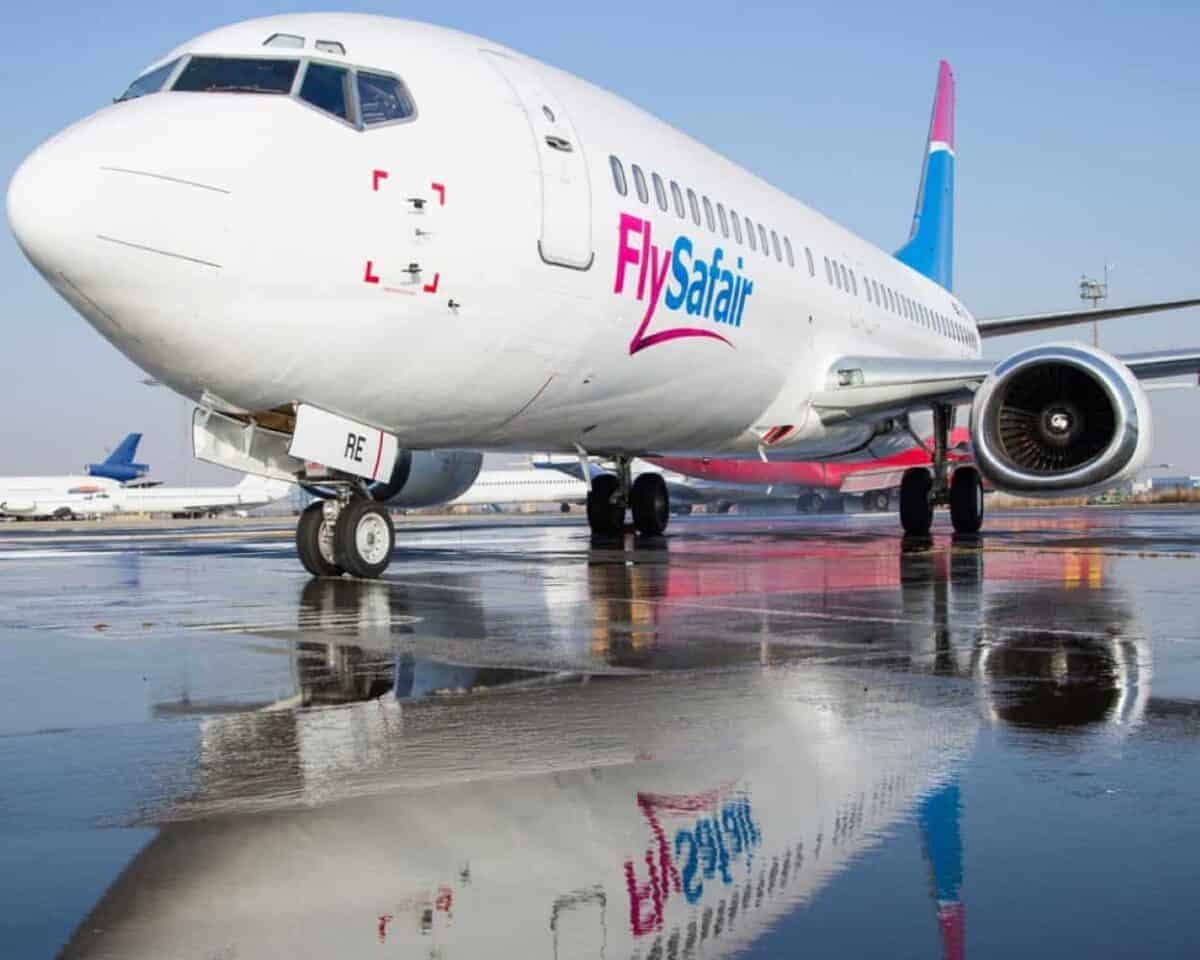Harith Partners is reportedly courting FlySafair in a B-BBEE deal that could give the state indirect control of over 70% of local flights.

After failing to acquire South African Airways (SAA) as part of the abortive Takatso Consortium endeavour, investment company Harith Partners’ aviation ambitions are still very much alive, with the company purportedly courting budget airline FlySafair in a black economic empowerment deal.
And, if the deal does go through, it will be state pensioners’ money funding it, because Harith and offshoot Lebashe are funded by the Public Investment Corporation (PIC), which also has a stake in the private equity firm.
Aviation industry insiders say that should the acquisition happen, it would ultimately give the state influence over the low-cost airline’s 60% domestic market share.
Harith Partners reportedly courting FlySafair in a B-BBEE deal
Coupled with the state’s direct ownership of SAA, this will deliver 76% market control of local flights to government-related entities.
Aviation analyst Guy Leitch does not think it’s a good idea for the purported deal to proceed.
“Should FlySafair equity be sold to Harith, it will effectively deliver almost three-quarters of the domestic aviation sector market share to the state. This reminds of an SAA and Mango scenario,” he said.
ALSO READ: Hope that tourism will be boosted as FlySafair launches new route in Limpopo
Low-cost airline Mango was a subsidiary of SAA and competitors claimed it was unfairly subsidised by the state-owned carrier.
FlySafair was told by the domestic and international licensing councils to sort out its ownership structure by February next year.
Both institutions found the economy-airline operator to have transgressed foreign ownership regulations, which showed that it was effectively controlled by its Irish parent ASL.
Value at around R5-7 billion
The carrier is still to be punished. Industry insiders value FlySafair at around R5-7 billion.
Economist Dawie Roodt said that political interference would be inevitable in such a scenario, with United Democratic Movement leader Bantu Holomisa in agreement.
“If this deal is on the cards, it should be publicly disclosed upfront,” Holomisa said.
ALSO READ: Union expects ‘mass exodus’ of pilots as 12-day Flysafair strike ends
“It’s state employees’ money under the care of a state-owned entity and this is governed by the Public Finance Management Act.”
Department of transport spokesperson Collen Msibi does not agree. He said that Harith is a black privately owned company and not a state-owned company.
“It must be noted that the Public Investment Corporation (PIC) is a significant investor – reportedly holding around 30% – this does not translate into direct state ownership or control of FlySafair.
Harith not a state-owned company
“The PIC’s mandate is to invest commercially on behalf of the Government Employees Pension Fund, not to exercise governance or operational control over portfolio companies. Therefore, the acquisition would not render FlySafair a parastatal.”
The PIC, Leitch said, as the ultimate backers of Harith, has a mandate and a long history to further the government’s development objectives.
“Pursuing either political or development objectives will mean that market related returns are foregone and this will naturally have a significant impact on the investment returns of entities such as the huge Government Employees Pension Fund, making state pensioners even poorer.”
ALSO READ: FlySafair pilot lockout and strike end in sight
Should the deal transpire, it would be Harith’s fourth attempt at airline ownership. Leitch said it is an enigma why some investors chase airline assets.
“It has always been a mystery as to why wealthy people choose to invest in airlines.
“The government tries to justify its reasons for investing in the airline industry because it is a strategic asset, providing essential connectivity for economic growth. Perhaps even more importantly, it is a great source for developing skills,” Leitch said.
Dept dismissed rumours that licensing councils’ stalling
Msibi dismissed rumours that the licensing councils’ stalling on sanctioning FlySafair over its ownership structure was to facilitate the deal.
“The licensing councils are independent structures whose decisions are not influenced by the department nor market forces. Their decisions are guided by the law,” he said.
Ultimately, Roodt said, it should not really matter who owns FlySafair and he noted that while South Africa wants to attract foreign investment, its laws and regulations bat against the country.
ALSO READ: FlySafair pilots and management meet to table new proposal
“Aviation is capital intensive and it may need foreign investment to grow. Why scupper growth when the airline has clearly attracted investment?”
Harith did not acknowledge or respond to questions by the time of publication.
FlySafair’s Kirby Gordon said that the airline’s management are not shareholders and therefore could not answer any questions.
Employee share ownership plan
However, FlySafair has an employee share ownership plan called the NdizaSafair Employee Trust, which owns 25.1% of shares in FlySafair Operations, the locally registered owner of the carrier.
Gordon referred The Citizen to the airline’s principals, but did not provide information requested on who they are.
Support Local Journalism
Add The Citizen as a Preferred Source on Google and follow us on Google News to see more of our trusted reporting in Google News and Top Stories.








